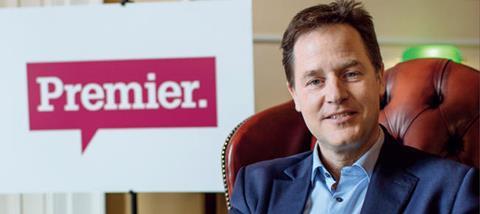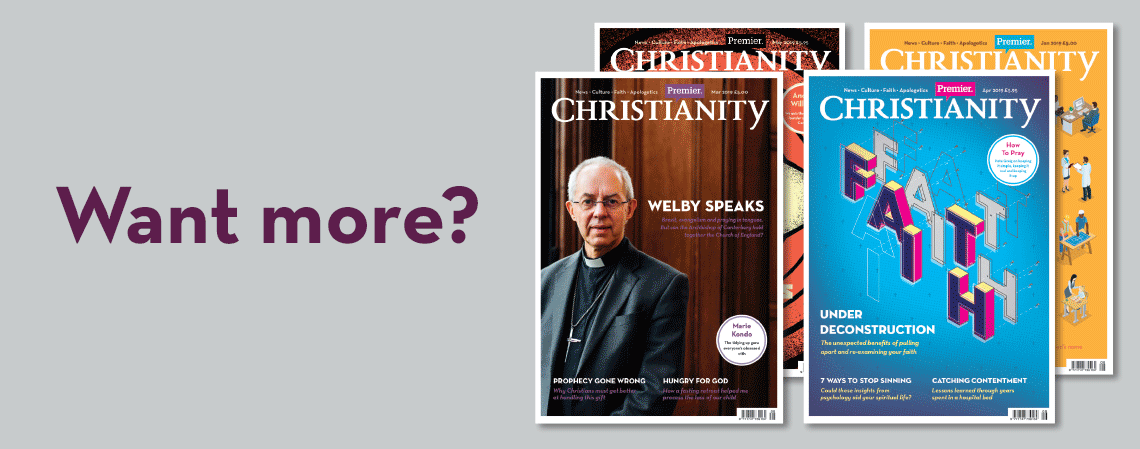
You’ve spoken about not being a believer in God. Do you think people view you differently because you are open about your lack of faith?
One gets very quickly typecast in these things. Actually, I have quite a complex attitude towards faith. My family is infused with faith. My grandmother on my father’s side was devout Russian Orthodox. My mother converted to Catholicism in adult life and is a devout Catholic. My brother studied theology and is a devout Anglican and Miriam [my wife] is, of course, a Catholic, and I committed to bring up my children as Catholics. That was what I undertook to Miriam before we got married, and I now accompany her and the children with great joy to mass pretty well every weekend.
I sometimes think it must be the most wonderful thing to be infused with faith. It’s not something that has happened to me yet.
I BELIEVE WE ARE SPIRITUAL BEINGS AS WELL AS PHYSICAL BEINGS
Are you open to that?
Oh, of course I am, absolutely. I’ve never had that much time for what I call ‘vociferous secularism’. I’m always a bit sceptical of anyone who acts with raging certainty about anything. In that sense, I’m sort of liberal to my fingertips. I believe we are spiritual beings as well as physical beings, and I hope I will continue to search and grapple with that until my dying day. I think that is what it is to be human.
I remain very sceptical of people who think they’ve got all the answers and there’s nothing more to be asked. Life is a journey of question marks, and that’s more relevant to faith and spiritual life than it is to almost any other aspect of life.
What do you make of the Catholic and Anglican Church’s recent criticisms of the government’s approach to social equality ahead of the election?
I think it’s actually a fantastic thing that the churches push for the kind of compassionate, fair society that they believe in. As it happens, I don’t agree with some of the assertions made.
You can’t have the fairness that I believe in, that the churches believe in, without a strong economy, and you can’t just magic up a strong economy from the rubble of what happened in 2008. But the principal assertion that we should always aspire to be a society of compassion is something I totally believe in myself.
The Church provides food banks and social support. How important is the Church in society when it comes to that sort of social action?
Hugely important. I want to pay tribute to all the church groups of different denominations who seek to serve the most vulnerable through the provision of food banks and other support. The balance we need to strike is making sure we welcome what the Church and that voluntary groups do, but not in a way that absolves the state’s duty to look after the most vulnerable.
What would you like to see the Liberal Democrats do to bring the number of people using food banks down?
As I said earlier, you cannot have a fair society unless you have an economy which is growing, where people can get work, earn their own money, look after themselves and their families. I think things are starting to alleviate, partly because of factors such as food inflation now being very low. But we’ve also taken more than 3 million people on low pay out of paying any income tax altogether, something that I insisted on personally in the government.
More recently, we have extended free healthy meals at lunchtime to all little children in reception class and years one and two in all primary schools across the country. That is a massive boost to the four in ten children who are in poverty. But in my view, it all starts with a healthy economy and that is the balance we’re seeking to strike.
Looking ahead to the election, does the politics of coalition mean we’re getting politicians making promises that can’t be delivered?
The great irony is that actually the Liberal Democrats have, excuse the pun, religiously stuck to the priorities we put on the front page of our manifesto last time, such as delivering a £10,000 tax free allowance, which we did. Secondly, delivering a pupil premium of £2.5bn to help the poorest children in school. Thirdly, helping to fix the economy and restore stability to the banking system, and fourthly, pushing for political reform. So I think, to be fair to us for once – since no one else will be, let me try and do it myself! – we actually stuck to it. That’s exactly the same approach that I want us to take to the five priorities that we will put on the front of our next manifesto.
Would you be comfortable going into coalition again?
Our attitude towards coalition is exactly the same as it was last time. I certainly don’t want the Liberal Democrats just to be a party that tries to somehow get its foot in the door in Whitehall from one government to the next. It’s got to be for a purpose, and the purpose in 2010 was to rescue a British economy which was teetering on the edge of a precipice. I think people will hopefully accept that the Liberal Democrats did the right thing to step up to the plate for the sake of the country, even though it came at short-term political cost to the party.
Over the last year we’ve seen the rise of Islamic State and Christians fleeing areas they have lived in for centuries. What have you made of this?
Anyone who believes in the Judaeo-Christian values of tolerance, mutual respect and peaceful coexistence can’t help but be extraordinarily distressed that the world has taken such a violent turn. It’s truly grotesque when you see murderers proclaim themselves in the name of a major salvation religion like Islam. They call themselves Islamic State, but then there’s nothing Islamic about them at all; nothing much state-like about them, either. It’s beholden on everybody of all faiths and none to stand together in a spirit of tolerance, openness and mutual respect in the face of such abhorrent intolerance.
YOU CAN’T HAVE THE FAIRNESS THAT THE CHURCHES BELIEVE IN WITHOUT A STRONG ECONOMY
A recent survey shows 94% of evangelical Christians will vote in May. What do you say to those feeling let down over same-sex marriage or the right to express faith in the workplace and are wondering which way to vote?
I think the big question for us as a country is how we safeguard the values of tolerance, pluralism and mutual respect at a time when there is increasing polarisation in British politics. I believe the way to do that is by anchoring this country in the moderate liberal centre ground where the vast majority of people, including people of faith, believe that we can strike the right balance between prosperity and mutual respect. The debate has become quite shrill and angry; a lot of finger-pointing going on. I think it’s important that we should stand up for those liberal centre ground values.
Where do you see yourself in three months’ time, post-election?
Notwithstanding all the bumps and scrapes, I’m immensely proud of what my team and party achieve. If you think back to what the country felt like in May 2010, we could have been the next Greece. The fact is we’re not, and we’re now talking about a more prosperous and optimistic future. I think that’s not a bad five-year stint. I’d like to think that people recognise that and will support us when they cast their vote on 7th May. Beyond that, it’s entirely for the British people to decide.
Premier Christianity is seeking interviews with all the major party leaders ahead of the general election. Read and watch the coverage in full at premier.org.uk/election
Click here to receive your free copy of Premier Christianity magazine.



























